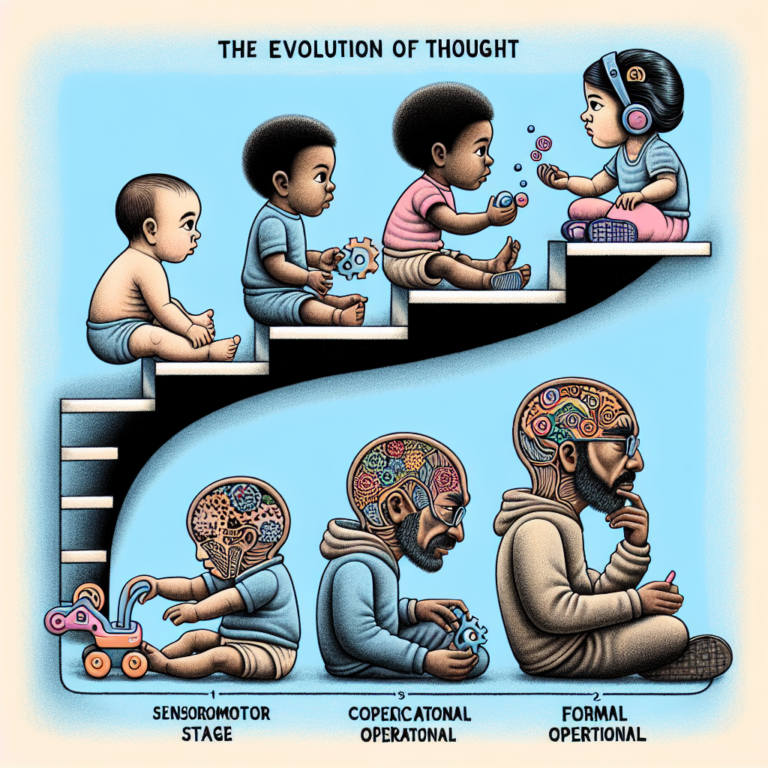
Introduction
In a world overflowing with opportunities yet rife with challenges, the ability to believe in oneself can be a game changer. From doubt to determination: cultivating self-efficacy in everyday life isn’t just a catchy phrase; it is a powerful journey that many embark upon yet few master. Self-efficacy, the belief in one’s own capabilities, serves as the cornerstone for achieving personal and professional goals. Understanding how to cultivate this belief could be the difference between a life of passive wishing and one charged with active creating.
Imagine standing at the edge of a past decision that now feels like a missed opportunity. Perhaps it was a job application you hesitated to submit, a skill you longed to learn, or a risk you feared to take. In these moments, doubt creeps in, dampening our spirits and stifling ambition. However, through the right strategies and mindset shifts, we can transition from doubt to ironclad determination—a state of unwavering self-efficacy that empowers us to take action.
Understanding Self-Efficacy
What is Self-Efficacy?
Self-efficacy, a term popularized by psychologist Albert Bandura, refers to one’s belief in their ability to succeed in specific situations. This belief influences how we approach goals, tasks, and challenges. Individuals with high self-efficacy are more likely to embrace difficult tasks as challenges to be mastered, while those with low self-efficacy often view challenges as threats.
Why Self-Efficacy Matters
- Goal Achievement: People with high self-efficacy set higher goals and are more committed to achieving them.
- Resilience to Stress: High self-efficacy allows individuals to remain calm and focused under pressure.
- Improved Performance: A strong belief in one’s abilities enhances motivation, persistence, and performance.
The Cycle of Self-Efficacy
Understanding the cycle of self-efficacy can clarify how to cultivate it. This cycle encompasses four primary sources:
- Mastery Experiences: Successfully accomplishing a task builds self-efficacy.
- Vicarious Experiences: Observing others succeed can boost our belief in our abilities.
- Social Persuasion: Encouragement from others can strengthen self-belief.
- Emotional and Physiological States: Positive emotions can enhance self-efficacy, while stress can diminish it.
Journey from Doubt to Determination
Step 1: Identify Your Doubts
Understanding where your doubts originate is the first step in transforming them into determination. This process involves introspection. Ask yourself questions like:
- What specific areas do I feel unsure about?
- Are these doubts based on past experiences or learned beliefs?
- How do these doubts affect my actions?
Case Study: The Story of Anna
Anna was a talented graphic designer but often second-guessed her abilities. After years of working at a mediocre job, she decided to pursue freelance work. Initially, the doubt was crippling; she feared rejection and believed she would fail. However, by breaking down her fears and recalling past successes, she began to reframe her narrative. Anna created a list of her skills and sought feedback from peers, which significantly boosted her confidence. By focusing on mastery experiences, Anna transitioned from doubt to determination, eventually building a successful freelance career.
Step 2: Set Achievable Goals
To cultivate self-efficacy, set small, achievable goals that lead toward your larger aspirations. This method is known as “goal-setting theory,” which outlines that specific and challenging goals lead to higher performance than vague or easy objectives.
Table: SMART Goals vs. Vague Goals
| Aspect | SMART Goals | Vague Goals |
|---|---|---|
| Specificity | “I will read one book per month.” | “I want to read more.” |
| Measurability | “I will track my reading progress weekly.” | “I’ll read whenever I can.” |
| Achievability | “I can fit reading into my daily routine.” | “I will read whenever I have time.” |
| Relevance | “Reading will help me improve my knowledge.” | “It would be nice to read.” |
| Time-bound | “I will finish my first book by the end of the month.” | “I’ll read it at some point.” |
Step 3: Build a Support Network
Surrounding yourself with supportive individuals can have a profound effect on your self-efficacy. Whether friends, mentors, or communities that share your interests, social connection plays a critical role in bolstering self-belief.
Case Study: Mark and His Community Theater Group
Mark was shy and avoided performing. But after joining a local community theater, he found encouragement and empowerment from fellow actors. The group’s commitment to supporting one another through rehearsals and performances helped boost Mark’s confidence. Each cheer, each shared success, and each supportive word transformed his self-doubt into a determination to perform.
Step 4: Challenge Negative Thoughts
Negative self-talk can erode all efforts toward building self-efficacy. Challenge these thoughts actively. Instead of saying, "I can’t do this," reframe it as, "I can learn how to do this."
Techniques for Challenging Negative Thoughts
- Cognitive Reframing: Identify a negative thought and brainstorm at least three positive alternatives.
- Journaling: Write about your feelings and experiences to uncover patterns in your thinking.
- Affirmations: Create positive affirmations that resonate with your goals and repeat them regularly.
Step 5: Celebrate Small Wins
Celebrating even minor achievements can significantly boost self-efficacy. Acknowledgment of progress reinforces your belief in your abilities and motivates continued effort.
Case Study: Lisa’s Personal Progress
Lisa set a goal to run a marathon. To build her self-efficacy, she celebrated each milestone, whether it was completing a week of training or hitting a new personal record. By acknowledging her efforts, Lisa developed an unwavering determination, and come race day, she crossed the finish line feeling triumphant.
Overcoming Common Barriers to Self-Efficacy
Fear of Failure
The fear of failure can be a significant deterrent to pursuing goals. Embrace failure as a learning opportunity, reframing it as part of the journey to success.
Perfectionism
Perfectionists often hold themselves to unrealistic standards, leading to self-doubt. Strive for progress over perfection, recognizing that growth comes through experiences.
Comparison to Others
Comparing yourself to others can diminish self-efficacy. Instead, focus on your personal growth journey, setting benchmarks based on your progress rather than on others’.
Conclusion
The transition from doubt to determination is not merely an abstract concept; it is an attainable reality supported by practical strategies. By understanding self-efficacy and taking actionable steps, you can instill a lasting belief in your capabilities. The journey may not always be smooth, but every small step contributes to a powerful evolution of your self-belief.
As you move forward, remember that self-efficacy is cultivateable—available to anyone willing to embrace the journey. The next time doubt creeps in, take a moment to recall your strengths, set tangible goals, and lean on your community. You hold the power to shape your future, moving from uncertainty to unwavering determination.
FAQs
1. What is the first step to building self-efficacy?
The first step is to identify and acknowledge the doubts that inhibit your belief in your capabilities. Understanding where those doubts come from can help you reframe them.
2. How can I set realistic goals?
Utilize the SMART criteria (Specific, Measurable, Achievable, Relevant, Time-bound) to outline clear and attainable goals that guide your actions.
3. What role does social support play in self-efficacy?
Social support can bolster your belief in yourself by providing encouragement, sharing experiences, and creating a sense of community.
4. How do I handle setbacks in my journey?
View setbacks as opportunities for growth rather than failures. Analyze the experience, understand what went wrong, and recommit to your goals.
5. Can self-efficacy be developed over time?
Absolutely! Self-efficacy can be cultivated through mastery experiences, social persuasion, and by challenging negative self-talk over time.
By embracing the journey of from doubt to determination: cultivating self-efficacy in everyday life, you invite a transformative experience that can revolutionize not just your pursuits but your entire outlook on life. Let today be the beginning of your empowering journey.














